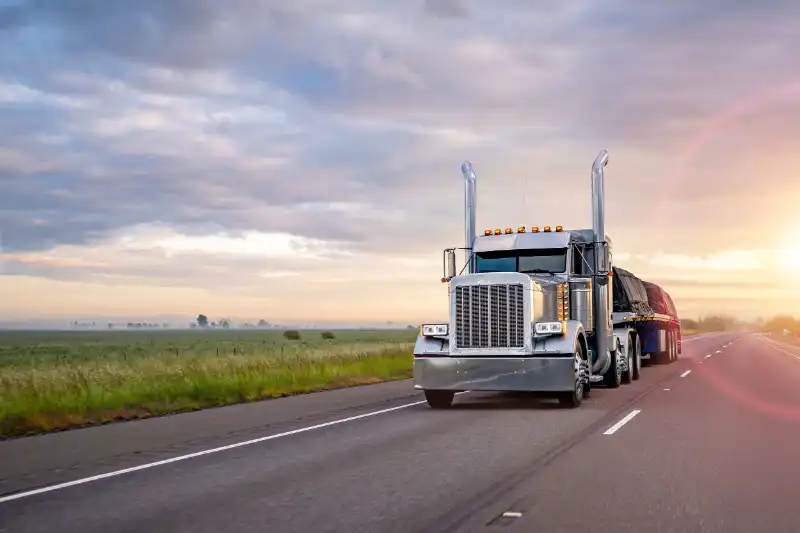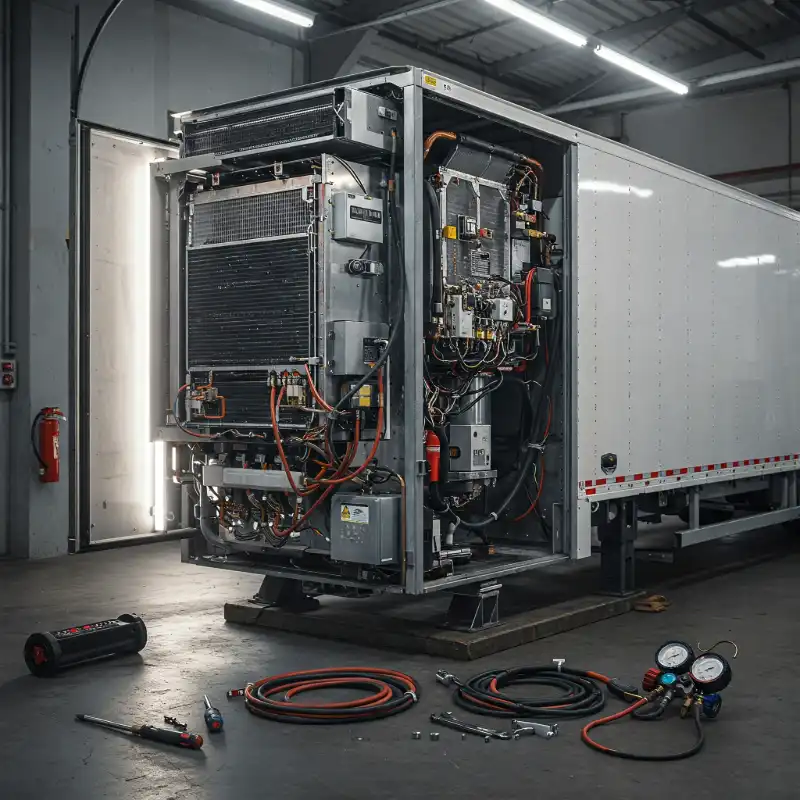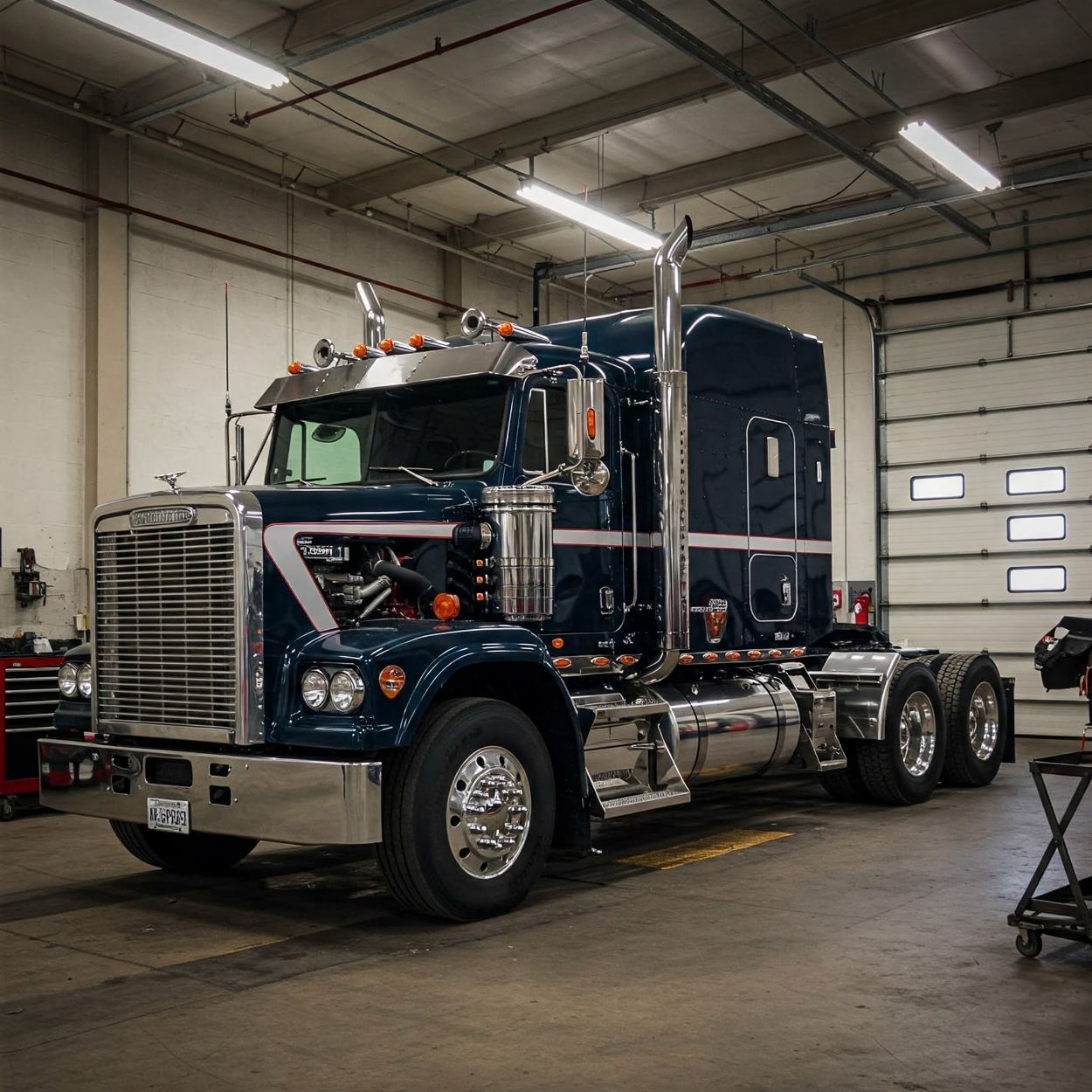
Running a successful grocery delivery fleet is no easy task. Balancing budgets, schedules, cargo, and everything else can seem like a never-ending struggle. With so many moving parts, it’s easy to slip up, and this can have a devastating effect on your operations.
But it doesn’t have to be. We’ve put together a quick list of 7 costly mistakes you can’t afford to make. Armed with this knowledge, you can keep your fleet ticking over smoothly and your customers happy.
1. Ignoring Preventive Maintenance
It’s amazing how many people ignore preventive maintenance, seeing it as an “unnecessary expense.” And yeah, you’ll save a few bucks today, but eventually, it’s going to catch up with you. Expensive repairs and unnecessary downtime will hurt your bottom line and reputation.
If your delivery truck breaks down mid-route, you risk the following:
- Missed deliveries and unhappy customers
- Spoiling of fresh produce
- Expensive towing and repair costs
- Prolonged downtime
Don’t see preventive maintenance as an expense. See it as something that will help save you time, money, and headaches further down the road.
2. Overlooking Driver Training
Untrained drivers can be a huge burden on your operations. Accidents, mishandled deliveries, and poor driving habits can skyrocket your fuel costs. With diesel prices getting more expensive by the day, this last one can devastate your budget.
Investing in thorough training programs ensures that your drivers know how to handle their vehicles and navigate routes efficiently, as well as safety protocols and advanced fuel-saving techniques. Remember, your drivers are the face of your business, so customer service skills should also be a focus of training.
A well-trained driver reflects positively on your brand as well as keeping your operations running smoothly.
3. Poor Route Planning
Another major blunder is poor route planning. A haphazard approach to routing leads to wasted fuel, increased vehicle wear and tear, and frustrated customers due to late deliveries. Use route planning software to optimize delivery paths, reduce mileage, and ensure timely deliveries.
Analyzing traffic patterns, delivery windows, and vehicle capacity can help you create efficient routes that save time and money.
4. Failing to Monitor Fleet Performance
If you don’t keep tabs on your fleet’s performance metrics, then how do you know how to improve? Use telematics systems to track fuel consumption, vehicle health, and driver behavior in real-time.
This data is priceless for making informed decisions about vehicle maintenance, route adjustments, and driver training needs. Regular performance reviews can highlight inefficiencies and help you implement corrective measures before they escalate into major issues.
5. Neglecting Compliance Regulations
Regulations are there for a reason, and they don’t take kindly to breaches. Failing to stay on the right side of these rules is going to result in hefty fines and legal problems. Depending on where you operate, you must obey state and federal regulations regarding vehicle safety, emissions, and driver qualifications.
Ignorance is never an excuse. Find resources that keep you up to date on policies and their changes. Non-compliance risks and financial penalties can tarnish your reputation and can disrupt your business operations.
6. Inadequate Insurance Coverage
It’s tempting to cut costs by skimping on insurance, but this is a gamble you don’t want to take. Comprehensive insurance protects your fleet against accidents, theft, and liability claims. We cannot stress this enough: do not cheap out on insurance coverage.
In the event of an accident, without proper insurance, you could face hefty out-of-pocket expenses that could cripple your business. Review and update your policies regularly to keep pace with your operations and risk profile changes.
7. Inconsistent Communication Practices
Communication is key. If your team isn’t talking to each other properly, it will only end one way. Clear, consistent communication ensures that everyone is on the same page, reducing the risk of errors and improving overall efficiency.
Set up regular check-ins with your drivers to discuss routes, issues, and feedback. Use communication tools like instant messaging apps or dedicated fleet management software to keep everyone connected. Keeping your customers informed about delivery statuses can also enhance their experience and build trust.
Final Thoughts
Avoiding these seven costly mistakes is crucial for maintaining a smooth and efficient grocery delivery fleet. Regular preventive maintenance, comprehensive driver training, efficient route planning, diligent fleet performance monitoring, adequate insurance coverage, embracing technology, and strict compliance with regulations are the cornerstones of a successful fleet management strategy.
At Integrity Fleet in Conroe, TX, with our professional fleet services, we're committed to keeping your grocery delivery fleet running strong, mile after mile. By addressing these common pitfalls, you can enhance efficiency, reduce costs, and deliver exceptional service to your customers.
More Articles


Top 7 Ways to Keep Your Grocery Fleet Running Smoothly This Summer
Top 7 Ways to Keep Your Grocery Fleet Running Smoothly This Summer
Prevent breakdowns and keep your grocery fleet running efficiently in summer. Learn how to protect engines, tires, refrigeration units, and drivers from extreme heat.


7 Errors in Refrigerated Truck Maintenance and Their Fixes
7 Errors in Refrigerated Truck Maintenance and Their Fixes
Avoid costly breakdowns and cargo loss with proper refrigerated truck maintenance. Learn about the top 7 reefer maintenance mistakes and how to fix them.


What Are the Benefits of Telematics in Managing Food Delivery Fleets?
What Are the Benefits of Telematics in Managing Food Delivery Fleets?
Discover how telematics can optimize your food delivery fleet in Texas. Reduce fuel costs, improve efficiency, enhance safety, and ensure faster deliveries with real-time tracking and smart analytics.
